Iran's Zarif flies to Switzerland to take part in Davos summit
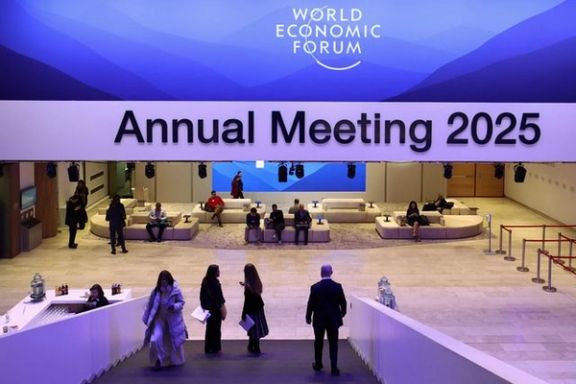
Iran's Vice-President for Strategic Affairs Mohammad Javad Zarif departed Tehran for Switzerland on Monday morning to attend the World Economic Forum's annual meeting.

Iran's Vice-President for Strategic Affairs Mohammad Javad Zarif departed Tehran for Switzerland on Monday morning to attend the World Economic Forum's annual meeting.
In addition to meetings and panel discussions, state media reported that Zarif is scheduled to participate in a conversation with CNN host Fareed Zakaria on the event's sidelines.
While business and political leaders began gathering in Davos on Monday for the four-day summit, US President-elect Donald Trump's swearing in ceremony was expected to dominate discussions despite his absence from the event.
Trump will address participants virtually on Thursday.
Last year, the World Economic Forum faced calls to revoke its invitation to Iran’s then Foreign Minister Hossein Amir-Abdollahian due to his close ties to the Islamic Revolutionary Guard Corps (IRGC) and support for Hamas.
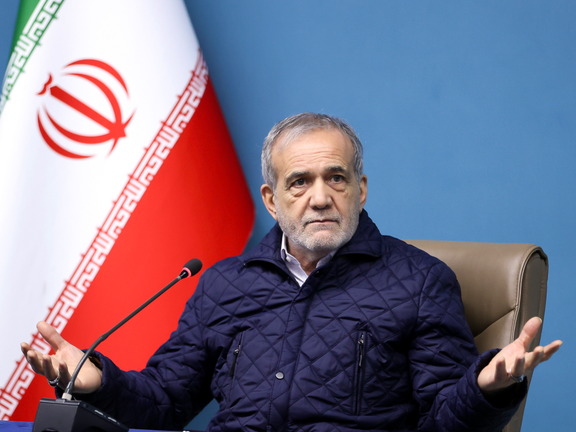
On Monday, Iranian President Masoud Pezeshkian said the government was forced to burn mazut, a highly polluting fuel, to prevent interruptions to household gas supplies this year.
"We were not supposed to burn mazut at all, and we announced this. But then we got stuck. If we hadn't used it, we would have had to cut off gas supplies to households, because our consumption is many times higher than in other countries. We were forced to," Pezeshkian said in a speech broadcast on state TV.
"In order to stop these problems from happening next year, we've started to create plans," he added, without providing further details.
Iran, one of the largest oil producers in the world, has faced a severe gasoline shortage since last summer. That shortage has prompted refineries to bulk out the fuel's volume with other substances, like mazut.
In November 2024, the government issued a decree ordering an increase in household gas tariffs and authorizing provinces to use mazut in all power plants and industries.
Despite repeated promises since to phase out the use of the highly polluting fuel oil in power plants, several reports suggest the practice has not stopped.
Tehran has also implemented rolling power cuts for residential and commercial areas this winter due to a severe shortage of natural gas, the primary fuel source for the country's power plants. The government initially presented the rolling blackouts as a necessary measure to avoid using mazut or diesel.
According to a 2023 report by Radio Farda, official Oil Ministry reports showed that the country intensified its use of mazut in December 2022 to 38.5 million liters per day, a 22 percent increase, and 42 million liters per day in January 2023.
Mazut, the non-standard gasoline contains harmful additives and has significantly contributed to the air pollution crisis in the country.
In 2023, UN special rapporteur on human rights and the environment David Boyd called on Iran to halt the practice, declaring it a human rights violation.
"Iran is burning mazut, one of the dirtiest fuels, to generate electricity. This produces massive volumes of toxic air pollution, which poisons millions of people in Iran, violating their human rights, including the right to a healthy environment. Iran must stop burning mazut!," the post on X read.
The use of the low-grade fuel mazut by power plants in Iran has been linked to severe harm to public health and even fatalities, with Iranians frequently expressing frustration over the worsening air quality and pollution in many cities.
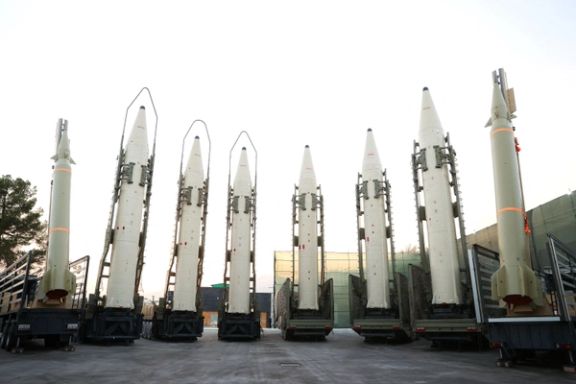
Iran will never negotiate over its military capabilities, the foreign ministry spokesman told reporters on Monday, in response to questions about potential Western demands to limit Tehran’s ballistic missile program.
"Iran has never discussed its military capabilities with anyone and never will," spokesperson Esmail Baghaei said, when asked if Iranian diplomats had addressed potential missile limitations during their meeting with European representatives last week.
The issue of limiting the country's long-range missiles has been a topic of discussion for years.
When the 2015 JCPOA nuclear agreement was signed, Tehran committed not to develop missiles capable of delivering nuclear warheads. The United Nations recognizes the agreement as part of Resolution 2231, which formalized the terms of the JCPOA.
“Paragraph 3 of Annex B of resolution 2231 (2015) calls upon Iran not to undertake any activity related to ballistic missiles designed to be capable of delivering nuclear weapons, including launches using such ballistic missile technology,” it reads in part.
Iran has continued the research and development of ballistic missiles, insisting that these missiles are not intended to carry nuclear weapons.
During Donald Trump's first term as president, the administration demanded that Iran halt its missile program as a precondition for negotiating a new nuclear agreement following its withdrawal from the JCPOA in 2018.
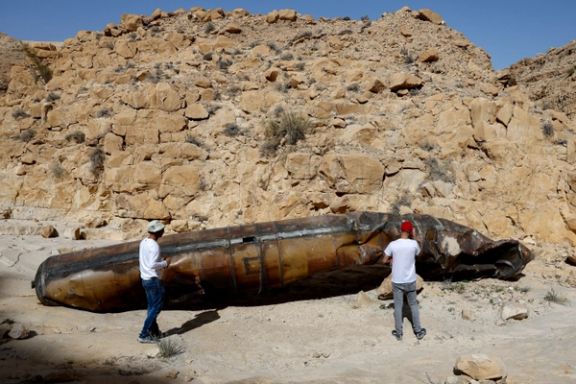
In 2024, amid rising tensions in the region, Tehran launched hundreds of ballistic missiles targeting Israel on two occasions. While most of the missiles were intercepted by Israel and its allies' air defense systems, a few caused damage inside Israel.
Although Tehran has not developed nuclear weapons, expert have cautioned that its ballistic missiles could be modified to carry warheads if it chooses to pursue them in the future, potentially following the North Korean model.
Tehran, already burdened by international sanctions, is bracing for an even tougher sanctions regime as Donald Trump makes his return to the White House. This has prompted growing calls from some Iranian government officials and politicians for negotiations with the incoming administration to ease US sanctions.
In comments to reporters, Baghaei repeated previous threats by Tehran that if UN sanctions are brought back this year as part of the JCPOA “snapback mechanism,” Iran might withdraw from the Non-Proliferation Treaty (NPT).
Supreme Leader Ali Khamenei, however, has yet to signal any willingness to compromise on key issues, such as high-level uranium enrichment or the ballistic missile program.
When a reporter asked the spokesman about leaving the NPT as a retaliatory option, Baghaei said, "If the snapback mechanism is used as a tool to pressure Iran or extract concessions, our response will be proportional. It has been clearly stated that any misuse of this mechanism means there will no longer be justification for Iran to remain in certain existing agreements. This position has been expressed before as well."
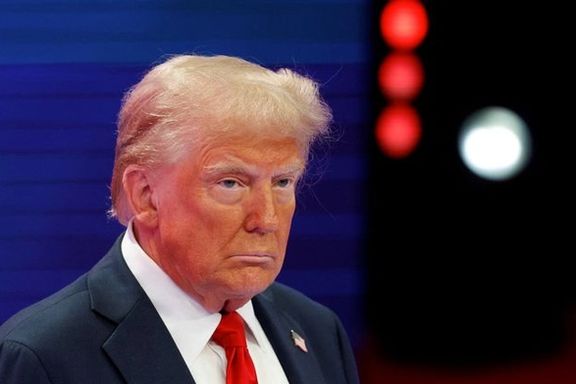
The Khamenei-funded newspaper Kayhan wrote on Monday that US President-elect Donald Trump can only come to Iran to face punishment for ordering the 2020 assassination of IRGC commander Qassem Soleimani.
“Trump can only come to Tehran to face qisas [retribution],” Kayhan wrote, referencing the Islamic principle of justice, interpreted as retaliation or punishment equal to the crime committed.
The editorial reflects the hardline media's continued opposition to any overtures of negotiation with the United States, which some Iranian officials have hinted at in recent months, including President Masoud Pezeshkian.
Veteran diplomat and vice president Mohammad Javad Zarif recently remarked that Trump should not be viewed as a "monster" and suggested that dialogue might be possible.
However, Kayhan said such positions undermine Iran's power.
Last week, Iran's ultraconservatives condemned Pezeshkian for his comments to NBC News, in which he denied Iran’s intention to assassinate Trump to avenge the January Soleimani's killing.
Hardline media outlets intensified their rhetoric, with another newspaper, Javan, labeling government officials as "Trump's representatives" and openly advocating for capital punishment.
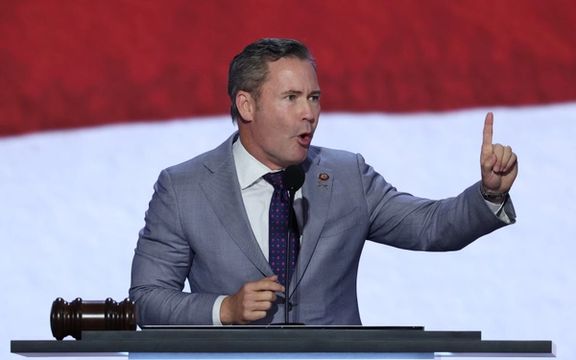
Iran's regional position is under significant strain, with its air defenses destroyed and key allies isolated, according to Mike Waltz, the incoming national security adviser for the Trump administration.
"Iran is on its back foot thanks to the leadership of [Israeli Prime Minister] Bibi [Benjamin] Netanyahu and the Israelis," Waltz said, adding that the Tehran's "air defenses are destroyed" after two massive airstrikes from Israel last year.
Speaking on CBC’s "Face the Nation" on Sunday, Waltz credited Israeli operations for what he called a strategic shift in the Middle East.
He highlighted Israel's targeting of Hamas and Hezbollah leaders in weakening Iran's regional alliances, as well as last month's overthrow by Islamist rebels of Syrian President Bashar al-Assad as critical blows to Iran’s influence.
Asked whether President-elect Donald Trump would support an Israeli strike on Iran’s nuclear facilities under what the Trump administration has promised to be a 'maximum pressure' approach to Iran, Waltz said: "This is a moment to make those key decisions, and we'll be doing that over the next month."
Waltz assumes his role as national security adviser on Monday.
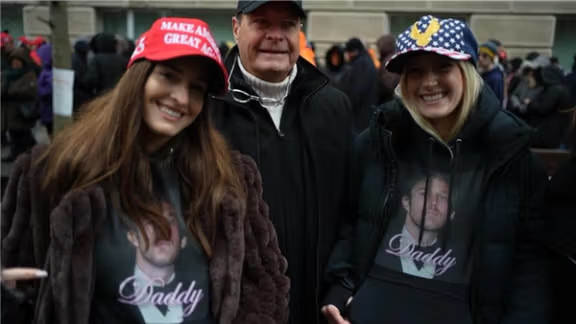
The Leighee family travelled from Chicago to Washington DC, braving the January chill to queue for hours at Donald Trump's victory rally, a day before his inauguration.
"Do you have a camera on that?" the Leighee daughters asked with laughter, pointing to their shirts donning an image of a young Donald Trump with the word "Daddy" printed below.
The Leighees, who radiate the image of an all-American family, harbor views on Iran and foreign policy that underscore Trump's appeal to disentangle from international conflicts and put "America First".
"I think sanctions and deterrence are imperative," said Mattley Leighee on combating Iran.

The prevailing sentiment among many of the Donald Trump supporters who waited for hours in the cold and rain to attend his victory rally ahead of the president-elect's inauguration is not to engage in war with Iran.
Iran International spoke to several people to get a sense of how they feel about Iran and about Trump's foreign policy.
The Leighees criticized the Biden administration for releasing frozen assets to Iran in a prisoner swap in September 2023 and said they're more concerned with US domestic issues.
"Foreign policy these past four years made us weak," said Mattley Leighee.
Wearing a beige fur vest and a parrot named Murphy sitting atop his left shoulder, Ken Houghton, a Trump supporter said he loves Iran and its people.
"Before there was Rome, there was Persia," said Houghton.
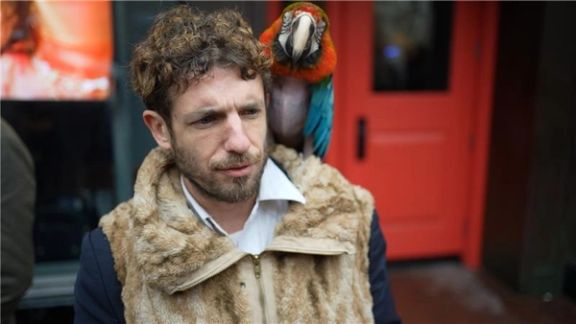
"We cannot go to war. We must be friends," said Houghton on the possibility of going to war with Iran to prevent it from becoming a nuclear power.
"Sanctions and having a strong policy to adversaries is okay, but we cannot go to war with Iran. I love Persian culture, their history is some of the most deeply rooted," he added.
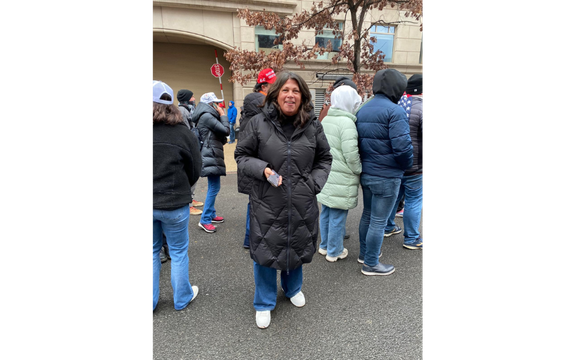
Sue Skelly, who travelled from Southern California to attend the rally, said she hopes that Trump can help the people of Iran.
"I hope Trump can undo what Jimmy Carter did," said Sue Skelly referring to the Ayatollah Ruhollah Khomeini ousting the monarch in 1979 during the Carter administration, "I have a lot Persian neighbours and I love them."
Heather Hertig, witnessed the shooting of the president-elect in Pennsylvania in July from the first row, and said she views Iran as a threat.
"I feel Iran had a hand in that [shooting]," said Hertig, "I'm afraid of Iran."
The FBI identified the shooter as 20-year-old Thomas Matthew Crook and said he had no ties to Iran. US intelligence has revealed that the Islamic Republic has been behind other attempts on Trump's life.
Hertig supports any move Trump decides to make on Iran, but she said she has a 24-year-old and she doesn't want to see him get drafted.
While fans of Donald Trump are not keen on war, Trump has surrounded himself with Iran hawks like Senator Marco Rubio and Mike Waltz. Trump has threatened to bomb Iran into “smithereens” after reports surfaced of agents at the behest of the Islamic Republic plotted to assassinate him.
Former press secretary Sean Spicer, attending Sunday victory rally, told Iran International he would support any action to prevent the Islamic Republic from acquiring a nuclear weapon.
"The president understands we face multiple threats. Iran being one of them, " said Spicer who served in the White House in 2017, "I would support anything that prevents Iran from becoming a nuclear power.